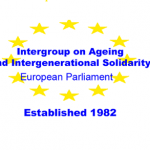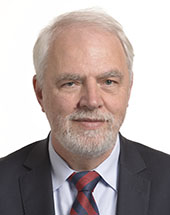Right to the City to older persons – meeting in Strasbourg on May 12th
The Joint meeting of the URBAN Intergroup and the Intergroup on Active Ageing and Intergenerational Solidarity took place on Thursday May 12th at the European Parliament in Strasbourg.
The main point of the meeting was the discussion on how to apply the Right to the City to older persons and seizing the opportunity of the EU Urban Agenda. Ms Julia Wadoux, policy and project coordinator for Health, New Technologies and Accessibility at AGE Platform Europe presented a broad picture of ageing in the EU, especially in the context of urbanisation. It has been stressed that according to the World Health Organisation (WHO), the adaptation of physical and social environments to the needs of the ageing population empowers people to age in better physical and mental health. It also promotes their social inclusion and active participation as well as helps them maintain their autonomy and a good quality of life. Moreover, WHO’s “8 areas of age-friendly environments in city” was quickly presented. During the presentation, the problem of age stereotypes and discrimination of old people in society was linked to the right to the city to older persons. The need for solidarity between generations and monitoring ageing has been stressed.
During the discussion, participants agreed that the EU Urban Agenda is a key opportunity for cities to design their age-friendly social and physical environments. MEPs underlined that ageing should be horizontally presented in different partnerships. However, it seems that actually the problem of mobility is central, not only in urban but especially in rural areas. Access to transport would allow older people social inclusion, improve health care, etc.
In conclusions, participants agreed that, in the short term, European and national policies could help to resolve some problems for older people leaving not only in cities. Moreover, long term investments are needed: for example pro-nativity policies to try to stop the consequences of ageing European pollution.
Appying the Right to the City to older persons-Julia Wadoux’ presentation
WHO Global Age-friendly Cities: A Guide
The Covenant on Demographic Change
Towards Smart, Sustainable and Inclusive Places for All Ages
Towards an age-friendly EU by 2020: From theory to local practice
Shaping Ageing Cities – 10 European case studies
“Imperative that we rethink Europe” was the message at CEMR 2016 Congress
 Jan Olbrycht, President of the URBAN Intergroup, took part to the Council of European Municipalities and Regions (CEMR) Congress in Nicosia (Cyprus) on Friday April 22nd.
Jan Olbrycht, President of the URBAN Intergroup, took part to the Council of European Municipalities and Regions (CEMR) Congress in Nicosia (Cyprus) on Friday April 22nd.
At the closing plenary, he called on mayors to take part in the future of Europe, but pointed out that the reality of the European Union may be completely different in a few months should the referendum yield a Brexit vote in the United Kingdom. While recognising that proximity to citizens entails more responsibility for local authorities, there was also a frank assessment that there are many mayors and citizens that are becoming increasingly anti-European. He suggested that “local government has to rethink Europe because all the decisions at the EU level are implemented at the local level”.
Jan Olbrycht was speaking along with the Mayor of Johannesburg, Mpho Parks Tau, and the President of the Congress of Local and Regional Authorities of the Council of Europe, Jean-Claude Frécon, who called to rethink the European project. Participants to the closing Plenary suggested that a new practice of local and European policy will re-invigorate a desire for Europe that “has dried up”.
The aim of the CEMR Congress was to discuss about the vision of Europe in 2030 around 7 major themes: Governance & Leadership; Economy & Finance; Business, Technology & Innovation; Society & Culture; Environment, Climate & Energy; Cooperation & Partnerships and finally the EU Integration.





